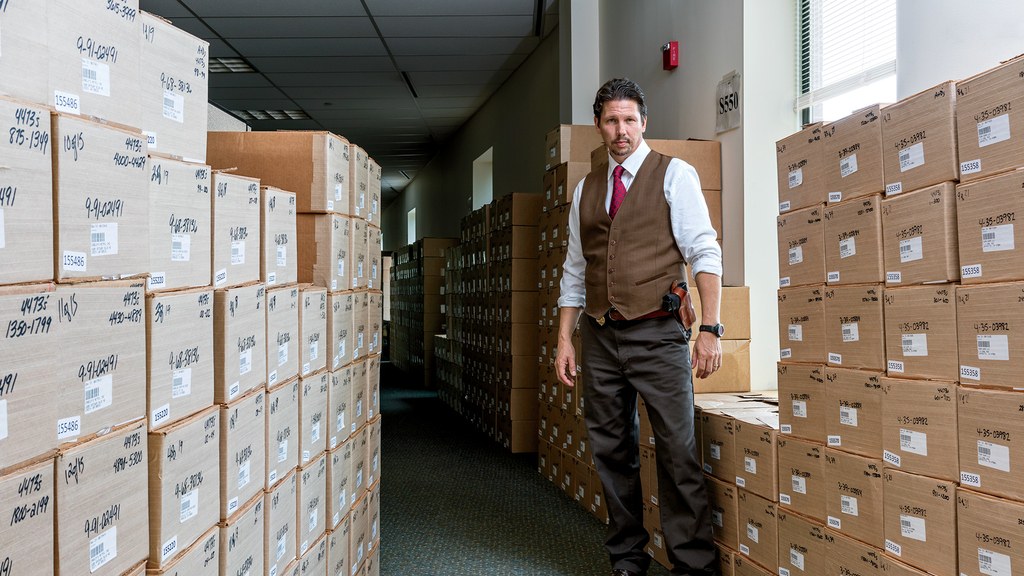Tracking people vs tracking guns
I have written about privacy before - Richard Stallman has words, and Smartphones are not your friend.
My local Python conference had a talk called Deep learning - a gentle dive that had a view on the level of image classification today.
People
The software that is written is ‘soft’ - it does little of the classification itself - but relies on a large ’training’ database to achieve some remarkabe stunts - like look at a crowded shop scene and classify people by gender and age.
Computers are getting better every year, and have recently surpassed humans on some standard image databases. These do things like routinely processing licence-plates on highways, so that law enforcement in countries like the UK can pretty much ask a computer where your car is.
Around a week after the 7 July 2005 London bombings police had a good picture of the perpertrators, where they lived, and their movements immediately prior to the bombing, and a CCTV picture with all suspects.
If you are a Person of Interest, and carry a cellphone, just the metadata (your location while the phone is on, people you call or SMS, the length of the call) can be retrieved by the police. They rarely need the content of the call - though I presume that is recorded as well.
Shopping information collected by Target allowed their algorithms to guess that a girl was pregnant - and coupons sent to her for baby clothes were noticed by her father, who did not know her condition.
More effort is needed for things like WhatsApp or Apple communications. However, with the production of a valid warrant, WhatsApp (owned by Facebook) will divulge metadata. WhatsApp cannot read your messages.
The investigations into the 2005 Rafiq Hariri assassination were almost entirely concluded by looking at cellphone metadata. The assassins had taken precautions, the phones were bought and used only for that purpose, but one call was made to an outside number, and at least one person carried his phone with his normal phone, allowing location information to identify him.
All phones were shut off after the assassination.
The result of all of this is that government, large retailers and websites can see into your life in unprecedented detail if they so wish. Facebook can microtarget you for advertisements, and you may not even be aware of it.
Russia and the Trump campaign have been accused of sending different messages to different people - promising different segments of the electorate different things. We have assumed up until now that a candidate’s public platform and manifesto is just that - but with individually targeted advertisements you could well be getting a different manifesto to your neighbour.
Information you read may have been created for you. The website does not behave like a mass-printed newspaper.
Another article - How Companies Use Personal Data Against People
Yet another brilliant article from lawfareblog - Decrypting the Going Dark Debate
What are we to do about all this information leaking out? The stable door is open, and the horse has bolted.
Guns

There are some people who have seen this issue of searchable databases of information invading your privacy - and they have seen it coming for a long time. Their stable door has only been opened a crack - and the horse is still inside. They have lobbied government, and ensured that this information is never indexed, and diligently check on a regular basis that this important information is only accessible via filing cabinets, paper, microfiche and people doing the work by hand.
Pretty smart huh?
The National Rifle Association has lobbied government, from the Gun Control Act of 1968 to the Firearm Owners Protection Act of 1986 to ensure that gun records cannot be searched with a computer. Congress also put a rider barring the agency from “consolidation or centralization” of gun dealers’ records in every spending bill affecting the agency from 1979 through 2011, then made the prohibition permanent, under law. Read the linked article. Here is another from GQ.
For the non-computer people, it means this :-
No searches like this
- Who has 25 guns in their possession?
- Who bought a .45 handgun in California?
- Who bought a gun out-of-state?
- Who just bought their first handgun?
Only searches like this
- Who bought a gun in this shop, March 2015
- Who bought a gun at this gunshow, April 2014
You are looking through filing cabinets, organised by state, year, and shop. Only.
Conclusion
How do I feel about all of this ? I don’t really know. We have given up entirely too much privacy over the years, and the people we have given it to have been very careless with it, and are inclined to use that information for purposes divergent from the original rationale of collecting it in the first place.
Should a policeman at a traffic stop be able to see that I do not pay child support?
Linking of disparate databases is the main enemy - and the law (in Western countries) would probably prohibit the linking. But we leak information all the time - an app on your phone that can read your pictures (well, you want a nice profile pic, don’t you?) can also read the date, time, and location (metadata) of those pictures as well, and can trivially build a timeline of where you have been. Did you want that ?
Do I want the US government to be able to search gun records - not just for the initial purchase, but for subsequent sales, and filter the guns by state ?
I am no fan of guns. But I am a fan of privacy.